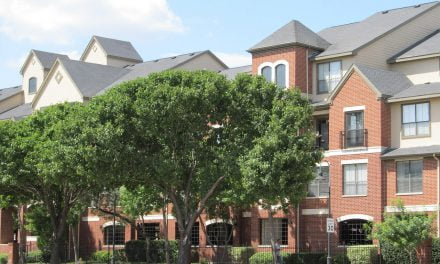The greater Los Angeles region and the greater San Francisco region take the first and second places in the number of option Adjustable Rate Mortgages (ARMs) taken out between 2005 and 2008.
Option ARMs, which were designed to benefit experienced investors and those with fluctuating incomes were doled out to droves of financially inexperienced families who wanted to stretch their income in order to purchase homes in high-end neighborhoods with skyrocketing home prices.
These families were able to choose to make very low minimum payments for the first five years, which 94% of those in the greater San Francisco region did.
These minimum payments cover neither the principal nor the interest, and therefore balloon the amount owed, called negative amortization.
But after the initial five-year-period, the loan is recast and full principle and interest payments must be made based on the ballooned balance.
These loans are typically for 90% of the value of the property, and they balloon to 125% of the original loan amount. On top of that, the housing bust has dropped 40-to-60% off the value of property encumbered by these loans.
These mortgages are going to affect the housing market differently than subprime mortgages, which were primarily used to finance first-time homebuyers and buyers of low-tier property. Option ARMs were used to finance homes in high-end markets. What this translates to is a new foreclosure wave for Multiple List Service (MLS) agents to sell, and it translates to ever lower prices. This time it will be a wave of high-end homes starting in 2010, five years after the 2005 push towards financing with option ARMs to provide the mortgage-backed bond market with an increasing flow of loans to securitize.
It is possible that this new wave can be abated, either by rising home prices (which would allow homeowners to refinance) or through government intervention (which includes principal cramdown of loans to property values).
first tuesady take: Unrealistic optimists are quick to give their opinion that “the recession is over” just because the prices in all tiers of home value have taken a slight upward turn. The recent bounce in prices is that “dead cat bounce” you always get in a freefall before the market finally reaches its bottom. For real estate, that is most likely to set in by 2012, with prices thereafter rising at the rate of inflation in 2013 and 2014 as California rebuilds the jobs lost in the Great Recession.
The poison of a bad national financial policy does not thin out overnight (nor does it thin out in a matter of months).
Prudent action, meaning cramdowns, must be taken by government, not more interest and payment modifications. Otherwise lenders will continue to “extend and pretend,” inducing homeowners to continue carrying bad debt for another five-to-seven years. [See first tuesday article: Riverside Town Hall Discussion of the Foreclosure Prevention Act (ABX2 7).]
Without cramdowns, homeowners under water will walk away. And they should walk away. These homeowners have no legal obligation to stay in their homes and pay on their purchase-assist mortgages. [See first tuesday article, “Anti-deficiency: past, present, and future“]
Re: “$30 billion home loan time bomb set for 2010,” from The San Francisco Chronicle.



















You guys constantly talk about and encourage banks to “cramdown” mortgages for overburdened owners,but what about the majority of people who still make their payments on time no matter what the market currently is? I think its indefensible to just walk away from a home ,and in many cases ,trash it,because it no longer is worth what they paid.Real estate like any investment,has its ups and downs and i have found that despite many warnings about the type of loan to take out,buyers from 2004-2006 were still taking out risky no money down loans because they were sure they could manage or rent it.I also have found that many owner/investors are asking inflated rents ,in some cases more than the mortgage payment.So there will come a time when they start whining, that “its not my fault” -er -blame it on who ?-the realtors of course,or whomever got them into the deal.Honestly the Banks should do more short sales as long as ,persay,the buyers stay with the Lender of record ,thus allowing the Lender to recoup their losses over a long period of time . Due on sale is often the only way a lender can recoup any significant interest as most owners sell and move many times in a lifetime ,which is a peculiarity in the American market place.Most people in other countries pay off their loans and own their home outright inside 15 years ,mainly because for them its about pride of ownership and they don’t get ANY tax write -offs.So how can they do it ,and not the average American homeowner ? Americans have for some time now used their equity as a “piggy bank ” to buy all kinds of toys amongst other things ,and are now paying the price. Maybe more sellers should “carry paper” more than they do ,and lenders be more open to loan assumption as long as the buyers are qualified. Lenders and Banks are to blame too for this mess ,as many engaged in fierce “see who can write the most loans competitions ” resulting in Bonuses and Inflated values .